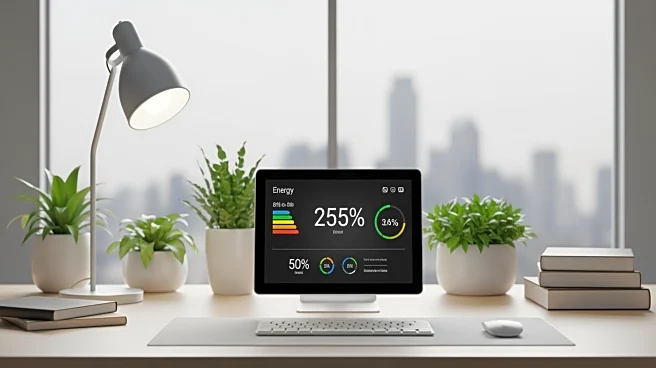What's Happening?
Small businesses, particularly in retail and franchising, are increasingly adopting Software-as-a-Service (SaaS) energy management systems to reduce operational costs and improve energy efficiency. These systems, which include Building Management Systems
(BMS) and Energy Management Systems (EMS), provide scalable and sustainable solutions without the need for costly infrastructure upgrades. SaaS platforms offer subscription-based pricing, shifting the financial burden from capital expenditure to operational expenditure, making them accessible to businesses with tighter budgets. Features such as automated scheduling and cloud-based diagnostics enhance energy management, while multi-site visibility allows franchisees to benchmark energy performance across locations.
Why It's Important?
The adoption of SaaS energy management solutions is significant for small businesses facing high electricity costs and tight margins. By providing affordable and scalable options, these systems enable businesses to optimize energy consumption and reduce expenses, contributing to improved profitability. Additionally, SaaS platforms support sustainability goals by reducing emissions and enhancing ESG reporting, aligning with the growing consumer demand for eco-friendly practices. The shift to operational expenditure models also democratizes access to advanced energy management technologies, previously reserved for larger organizations, leveling the playing field for small businesses.
Beyond the Headlines
The integration of SaaS energy management systems into small businesses may lead to broader industry shifts, encouraging innovation in energy efficiency technologies. As more businesses adopt these solutions, there could be increased pressure on traditional energy providers to offer competitive and sustainable options. Furthermore, the emphasis on sustainability and ESG goals may drive cultural changes within the retail and franchising sectors, fostering a more environmentally conscious business environment. The long-term impact could include enhanced consumer trust and loyalty, as businesses demonstrate their commitment to sustainable practices.


















